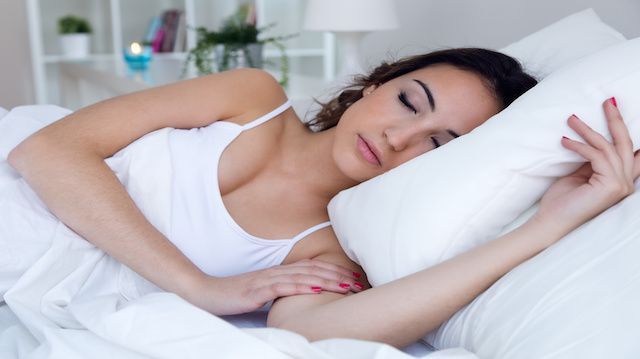
How much sleep are you getting every night? Are you waking refreshed and ready for the day ahead? Despite all our modern conveniences, special beds, sleep machines, and sleep-aid pharmaceuticals, Americans generally sleep horribly. Data from the National Sleep Foundation found that 48 percent of Americans have insomnia, and 22 percent have it almost every night.
Sleep is vital to your health, and getting enough can keep your risk of cardiovascular disease, depression, obesity, and diabetes lower. Getting enough sleep is also essential to your energy and focus throughout the day. Even though this is not new information, our sleep quality is still suffering.
According to a new study published in Current Biology (2015), our ancient cave-dwelling ancestors may have slept better and much less. The study examined the sleep behaviors of three pre-industrial societies in Africa and Bolivia. By studying these cultures, researchers essentially looked back in time to see how our ancestors might have slept before the modern age of TV, computers, cell phones, and even electricity began messing with our sleep patterns.
The findings were significant, uncovering that despite cultural and geographical differences, the participants were in good health and slept between 5.7 to 7.1 hours per night. The San of Namibia, Hadza of northern Tanzania, and Tsimane of Bolivia were all found to sleep soundly through the night.
 The societies analyzed in the study had no set schedule for bedtime, generally calling it a night three hours after sunset and rising before sunrise. There were also no reported cases of insomnia — some of the societies didn’t even have a translatable equivalent of the word. The participants also had fewer health problems, including obesity and high blood pressure.
The societies analyzed in the study had no set schedule for bedtime, generally calling it a night three hours after sunset and rising before sunrise. There were also no reported cases of insomnia — some of the societies didn’t even have a translatable equivalent of the word. The participants also had fewer health problems, including obesity and high blood pressure.
This recent glimpse into the sleep patterns of ancient cultures brings many things into question. The Centers for Disease Control and Prevention (CDC) recommends between seven and eight hours of sleep per night. Jerome Siegel, one author of the study and president of the Sleep Research Society, says that sleep recommendations might be part of the problem.
Siegel noted in news reports that many people are not getting the recommended amount, and this may be triggering more anxiety. This will in turn cause doctors to prescribe sleep aids, which help you fall asleep but don’t lengthen sleep. While getting seven to eight hours of sleep per night is certainly ideal, sleep quality may count even more than quantity.
How can you sleep more like your hunter-gatherer ancestors? Here are a few tips that may help you slide into a more natural sleep pattern.
- Eat a healthy diet. Add more fruits, veggies, nuts, fish, and healthy fats. Avoid the processed stuff.
- Exercise and keep your body weight in check.
- Wake up at the same time every day.
- Cut back on sugar, caffeine, and alcohol.
- Try to regulate the temperature in your bedroom by having a window open during warmer weather.
- Keep your room dark — think cave — and turn all cell phones, computers, and tablets off, and leave them in another room.
What are some techniques you use for better sleep?
—Stephen Seifert
Stephen Seifert is a writer, professor, adventurer and a health & fitness guru. His flair for travel and outdoor adventure allows him to enjoy culture and traditions different than his own. A healthy diet, routine fitness and constant mental development is the cornerstone to Stephen’s life.
Sources:
http://www.cell.com/current-biology/abstract/S0960-9822(15)01157-4
https://sleepfoundation.org/sleep-disorders-problems/insomnia/sleep-aids-and-insomnia
http://www.cdc.gov/sleep/index.html
http://www.cdc.gov/sleep/about_sleep/how_much_sleep.html

